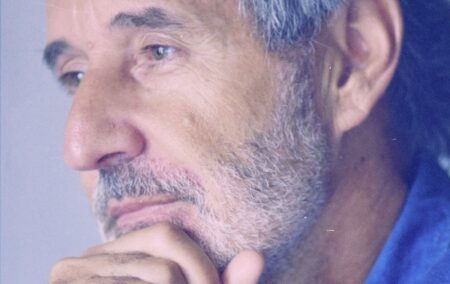Tributes to poet, painter and activist Breyten Breytenbach, who died in Paris on Sunday, have emphasised his contribution to literature, particularly in Afrikaans, to art and to activism in the name of human rights and freedom.
Born in Bonnievale in the Western Cape in September 1939, he grew to become what critic Shaun de Waal described in an assessment on News24 as a writer “considered by many to be the greatest Afrikaans poet of his generation”.
Breytenbach, De Waal wrote, “made a blazing debut among the rebellious and innovative writers of the Sestigers but left South Africa and exiled himself in France”.
Novelist Marita van der Vyver said in a Facebook post: “My first Afrikaans literary hero since my teenage years. He didn’t need a surname. He was and is Breyten, forever.”
Writer Antjie Krog said of Breytenbach: “Breyten’s writing was radical, but he was the first poet, I almost want to say writer, who also lived radically. Breyten confronted us with that thing of, ‘Okay, you’re against apartheid, but how are you living against apartheid?’”
Writer Justin Fox, a nephew of painter Francois and Sestiges writer Uys Krige, said: “Shining through his work was an intolerance of injustice and contempt for the venal, corrupt leaders of both the old regime and the new.”
Fox said: “Breytie was witty, gentle, entertaining and a formidable intellect. He has been a part of my life since childhood.”
Breytenbach earned notoriety in establishment Afrikaans circles at the time when, in 1962, he married Yolande Ngo Thi Hoang Lien in London. Her father was Vietnam’s representative at Unesco. The couple settled in Paris.
When his first work, Die Ysterkoei Moet Sweet, was awarded the APB Prize, the publishers initially invited Breytenbach and his wife to attended the awards ceremony in South Africa. However, as his marriage was considered to fall foul of Mixed Marriages Act of 1949 and the Immorality Act of the next year, the Natinonalist government declined to grant his wife a visa.
He later described this as the event that stimulated his political consciousness.
In 1973, the coupled were granted a special visa to allow them to attend a writers’ conference at the University of Cape Town.
Two years later, having become convinced to take more direct action against the human rights crisis visited on South Africa by apartheid, Breytenbach returned to the country in 1975, travelling on a false passport. He was arrested a few days after arriving in the country, and promptly charged under the Terrorism Act. He pleaded guilty to entering South Africa to start an organisation called Atlas or Okhela, which was intended to be a branch of the ANC for whie people.
He was sentenced to nine years’ imprisonment for high treason, of which he served seven.
French President Emmanuel Macron’s office said in a statement that the President “salutes the figure of a great craftsman of human rights and freedom, who will always be a link between France and South Africa”.
The statement continued: “The resolute support of President François Mitterrand contributed to his release in 1982. From then on, he played the role of awakener of conscience among the French.”
President Cyril Ramaphosa paid tribute to Breytenbach’s “strident and sustained literary assault on apartheid and its enforcers and endorsers”, acknowledging the poet’s “bravery and perseverance (in standing) up to his persecution and prosecution by the apartheid state”.
Ramaphosa said: “Fearful of his influence on the minority electorate in South Africa and on world opinion, the apartheid regime imprisoned him for opposing the system and channelling through his diverse art forms and political and fraternal affiliations the militancy, tragedy and resilience of our liberation struggle.”
DA spokesperson on Justice and Constitutional Development Advocate Glynnis Breytenbach said the party noted the poet’s death “with deep sadness”.
She said he was “widely considered to be one of Afrikaans’ most important poets”, a writer whose awards included the Zbigniew Herbert International Literature Prize (2017) and the Alan Paton Prize for Literature.
She noted that Breytenbach “also accompanied his friend, Frederik van Zyl Slabbert, to the Dakar Conference in 1987 that paved the way for negotiations with the ANC, and continued to work towards the establishment of a democratic South Africa”
Breytenbach, she said, “was among the best of us, recognised as such well beyond the shores of South Africa”.
Breytenbach is survived by his wife, Yolande, daughter Daphnée, and two grandsons.
[Image: https://en.wikipedia.org/wiki/Breyten_Breytenbach#/media/File:Breyten_Breytenbach,_1995_-_16.jpg]


